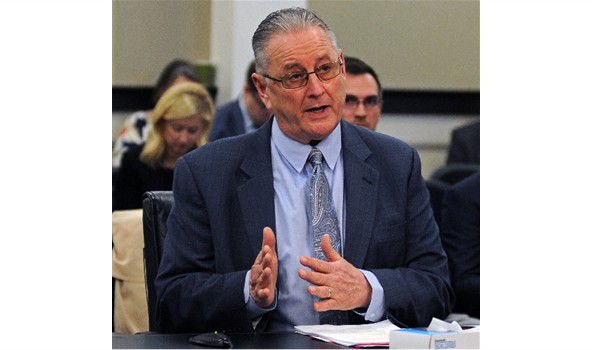
Sen. Jimmy Higdon, R-Lebanon, explaining Senate Bill 279, legislation he introduced that would establish requirements for assistance dogs.
FRANKFORT, KY (March 11, 2020) – Someone brought a squirrel into a Kentucky emergency room as an emotional support animal.
It’s these kinds of anecdotes Sen. Jimmy Higdon, R-Lebanon, said prompted him to file legislation, known as Senate Bill 279, to clarify where and when assistance dogs are allowed on premises.
The importance of such government regulation was recently illustrated by the fact that COVID-19 is a disease caused by a member of the coronavirus family of viruses that occasionally jumps from animals to humans, Higdon said while testifying before the Senate Health & Welfare Committee.
“We have to be very, very cautious,” said the retired grocer, who recounted constituents’ concerns about the number of dogs they now see in grocery stores and restaurants. “
SB 279 would permit an establishment to inquire about the assistance dog and refuse admittance if it jeopardizes the health and safety of others. It would also make the handler liable for damage caused by the animal.
The second section of SB 279 would make it unlawful for a person to misrepresent a dog as an assistance dog by placing a harness, collar, vest or sign on the animal. A violation of this section would be punishable by up to a $1,000 fine. The third section would raise the fine for various actions violating the rights of a person with an assistance dog from $250 to $500.
A final section would tweak the definition of assistance dog by requiring the dog to, among other things, have been trained to work, provide assistance or perform tasks for the benefit of the person with a disability. Higdon expressed concerns about the legitimacy of assistance dog certifications sold online.
Committee Chair Sen. Ralph Alvarado, R-Winchester, noted that legitimate assistance dogs have real therapeutic value. He said these types of animals make life better for people with disabilities but he understood abuses occur.
SB 279 advanced out of the committee. It now goes to the full Senate for further consideration.











